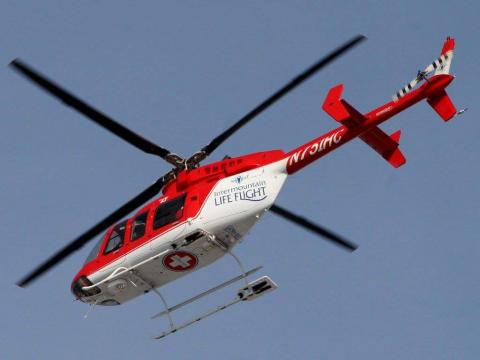
Imagine you're going into surgery.
You're under strict doctor's orders to avoid solids. But you're drinking plenty of clear liquids like juice, Gatorade, and Sprite before the surgery. And you're looking forward to the "protein shake" that the nurses have promised as a meal replacement after the procedure.
Then you realize that you're on track to consume 30 teaspoons of sugar. The World Health Organization recommends no more than 6 teaspoons of sugar, per day, for healthy people.
Physicians know that excessive sugar consumption leads to a host of ailments. Yet today's hospitals are veritable sugar shacks.
This doesn't make sense.
Our bodies weren't designed to process copious amounts of sugar. Excess sugar causes our pancreases to produce excess insulin, which disrupts our metabolisms and causes our bodies to store its extra energy as body fat.
Sugar consumption drives America's obesity epidemic, which accounts for nearly one in five U.S. deaths. Folks who drink one or more sugary beverages per day are 26 percent more likely to develop diabetes than those who have one or fewer drinks per month.
Researchers have even linked sugar to certain cancers. One study of 60,000 women showed that women who consumed excessive sugar were more likely to develop uterine cancer.
It's unfortunate that hospitals foist so much sugar on patients. The "protein shakes" given to people recovering from surgery are loaded with sugars like corn syrup and commercially refined oils.
For example, each serving of Ensure's "Original Milk Chocolate Nutrition Shake" has 33 grams of carbohydrates -- i.e., sugar -- while just 9 grams of protein. By contrast, a serving of chicken drumsticks contains nearly 30 percent more protein. Another "protein shake," Boost's "Chocolate Sensation" has just 10 grams of protein and 41 grams of carbohydrates. That's more than a can of Coca Cola.
Patients are also encouraged to consume Gatorade to get electrolytes. But just 32 ounces of Gatorade contains 56 grams of sugar -- double what the World Health Organization recommends per day.
In most hospitals, patients can choose from a smorgasbord of sugar. Vending machines are packed with candy and soda -- and cafeterias serve dessert with most meals. One in five U.S. hospitals even houses a fast-food restaurant like McDonald's!
Medical establishments must do better. That's why, for years, I've advocated for my hospital -- West Virginia's Jefferson Medical Center (JMC) -- to remove all sugary drinks from its vending machines and cafeterias. We just did so.
JMC is one of the first hospitals in the country to offer low-carb meals to its diabetic patients. That's hugely important. Recent studies reveal that a carb-restricted diet can slash long-term blood sugar levels for diabetics.
JMC offers handbooks, videos, and recipes to help discharged patients adopt well-balanced, low-sugar diets. In West Virginia -- the most obese state in the nation -- efforts like these are critical.
Other hospitals are stepping up. In 2012, the Connecticut Mental Health Center began a "Sound Mind Sound Body" Initiative to improve the health of employees and patients. Now, patient meals only include water, coffee, tea, milk, and sugar-free juice. Geisinger Health Systems in Pennsylvania went sugar free for beverages in January. And other hospitals are swapping sugary protein shakes for sugar-free yogurt, which is full of protein, healthy fats, and "good bacteria" that aids digestion.
Hospitals have a duty to make people healthy. They can start fulfilling that mission by banning sugary drinks.
Mark Cucuzzella, MD, FAAFP is a Professor at West Virginia University School of Medicine's Center for Diabetes and Metabolic Health.